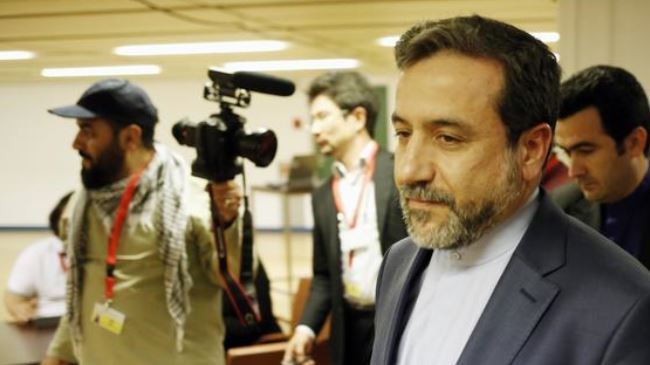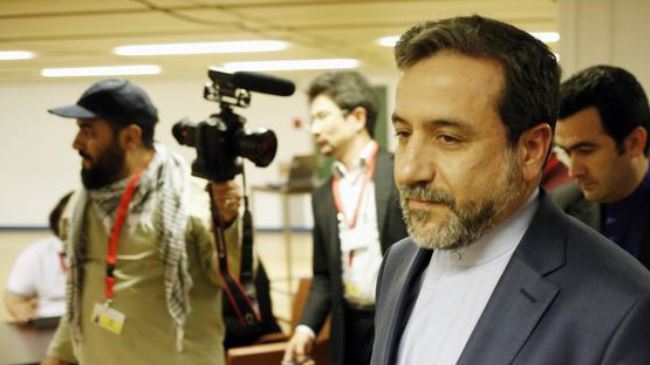 The latest round of nuclear talks between Iran and the 5+1 Powers ended on Wednesday in Geneva, with no visible sign of progress towards a comprehensive agreement.
The latest round of nuclear talks between Iran and the 5+1 Powers ended on Wednesday in Geneva, with no visible sign of progress towards a comprehensive agreement.After two days of bilateral sessions � including 13 hours of direct talks between the Iranian and American delegations, the two sides held a plenary session on Wednesday.
There was no news of any advance on key issues, such as the number and level of Iran�s centrifuges for uranium enrichment and the lifting of US-led sanctions.
Instead, the lead Iranian negotiator, Deputy Foreign Minister Abbas Araqchi, said that�the next discussions will be in January. Like the latest talks, they will be at deputy level, with no participation by Foreign Ministers.
In late November, Iran and the 5+1 failed to reach a comprehensive resolution despite weeks of intense talks which included the Foreign Ministers. Interim arrangements were extended to July 1 to allow continued negotiations
Facing Economic Crisis, Iran Woos Turkey With Visit of Ankara�s Foreign Minister
Facing serious economic problems, Iran has tried to mend relations with Turkey, an important trading partner, with the visit of the Turkish Foreign Minister to Tehran.
Foreign Minister Mevl�t �avu?o?lu met President Rouhani, 1st Vice President Eshagh Jahangiri, and Foreign Minister Mohammad Javad Zarif.
Turkey has long been one of Iran�s key trading partners, and Tehran has said that it is seeking $15 billion in trade in 2014, followed by more than $30 billion in 2015. However, that plan has been hindered by political difficulties over issues such as the Syrian crisis and by US-led sanctions that have curbed Turkish financial transactions � including the transfer of gold � with the Iranians.
Rouhani declared�in his photo opportunity with �avu?o?lu, �Tehran and Ankara should seek common and important goals in the field of regional issues. The two countries� close cooperation could help ensure stability and security in the whole region.�
However,�Jahangiri pointed to the challenge�that Iran faces: �In their recent meeting, the two countries� Presidents have agreed to boost bilateral trade exchanges to $30 billion by 2015, which seems to be an accessible figure, but it needs a swift removal of the existing obstacles.�
By EA WorldView
The Iran Project is not responsible for the content of quoted articles.











